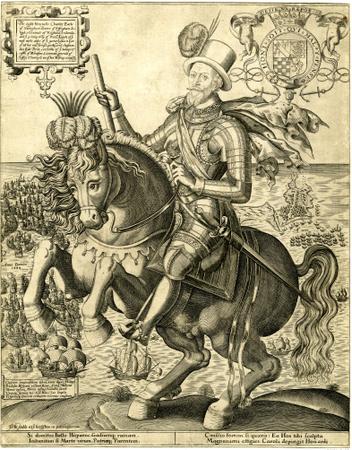Monday, July 6, 2009
Dig the New Breed
One of the many interesting things to come out of the conference seemed to be a general agreement that the concept of the breed as we know it today didn't exist in the early-modern period. This is something that I briefly hinted at in my PhD thesis in 2001 so I feel vindicated there. I also remember Kerry Cathers exposing British native breeds as a myth in a paper on Anglo-Saxon horses (and someone in the audience getting extremely stroppy about it!). But now I'm wondering when and why the idea of the breed did emerge. Was the founding of breed societies somehow linked with eugenics and anxieties about racial purity? Did this depend on Darwin changing people's understanding of biology? The idea of pure bloodlines doesn't seem compatible with geohumouralism, for example. I expect Sandra might be able to tell us a lot about these things (if you can overcome your Luddite tendencies ;)). Does anyone else have any thoughts on this?
Subscribe to:
Post Comments (Atom)




Let's try this again. It didn't work last time.
ReplyDeleteI have several thoughts on this, a few of which I have published in an essay in Frank Palmeri's _Humans and Other Animals in 18c British Culture_ (Ashgate 2006) and in an essay that should be coming out (I think also from Ashgate) on the 18C Book, edited by Laura Runge.
My main take is that I think in 17c and early 18c "breed" and "race" tended to be used as cognate terms, but in a sense that differs slightly from the modern use. By "breed" I find most frequently that people seem to be indicating the human agent responsible for the animal, so one would recommend buying a horse of "the breed of Fenwick" because Sir John Fenwick bred good horses. In a cognate fashion, one encounters "race" as seeming to refer to the immediate descendants and family within a given stud, so one speaks of "the race and breed at Tutbury" referring to those animals living and being bred at the royal stud in Staffordshire. Within the stud, the animals might be differentiated from one another by labels that we now tend to see as breed indicators, but that I believe at the time functioned as markers of nationality and (more importantly) geohumoral influence: barb, jennet, neopolitan, etc.
One part of my larger argument about the origin of the thoroughbred that culminates in its codification at the end of the 18c in a General Stud Book is a process whereby an earlier notion that designates animals as primarily human property with geohumoral traits (ie, "Markham's Arabian") gives way to an emergent notion of animals as individuals having intrinsic inheritable traits that can be mapped through families.
Thanks, this is all really useful. The nationality thing definitely ties in with what I've found in English Civil War records. The lists of horses donated to parliament's armies in 1642-43 give detailed descriptions in terms of sex, colour and markings, but rarely anything like breed. Sometimes there are nationalities (eg Barbary, Dutch) but mostly there aren't.
ReplyDeleteThoroughbreds are interesting because they were probably the first breed to emerge and be rigidly defined (at least in England) but they're not considered to be quite the same as "pure" breeds. It's always been acknowledged that they're a hybrid of eastern stallions and English mares. So purity might be something that comes even later, but I'd guess that later breed societies were influenced by the thoroughbred stud book.
A quick Google suggests that English breed societies seem to start appearing in the late 19th century. Their websites seem to be full of all kinds of dodgy myths, but they do tend to admit that "native" breeds are not really all that pure and have been influenced by many different kinds of horse. It would be interesting to investigate what they said about this when they were first founded.
I don’t know If I said it already but …I’m so glad I found this site…Keep up the good work I read a lot of blogs on Online Pharmacy a daily basis and for the most part, people lack substance but, I just wanted to make a quick comment to say great blog. Thanks!
ReplyDelete